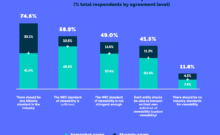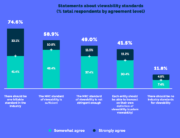In The Big Short , investor Michael Burry says “One hallmark of mania is the rapid rise in the incidence and complexity of fraud.” (Burry shorted the mania- and fraud-filled subprime mortgage market and made a mint in the process.)
One would be equally smart to bet against the mania for the tracking-based form of advertising called adtech .
Since tracking people took off in the late ’00s, adtech has grown to become a four-dimensional shell game played by hundreds (or, if you include martech, thousands) of companies, none of which can see the whole mess, or can control the fraud, malware and other forms of bad acting that thrive in the midst of it.
And that’s on top of the main problem: tracking people without their knowledge, approval or a court order is just flat-out wrong. The fact that it can be done is no excuse. Nor is the monstrous sum of money made by it.
Without adtech, the EU’s GDPR (General Data Protection Regulation) would never have happened. But the GDPR did happen, and as a result websites all over the world are suddenly posting notices about their changed privacy policies, use of cookies, and opt-in choices for “relevant” or “interest-based” (translation: tracking-based) advertising. Email lists are doing the same kinds of things.
“Sunrise day” for the GDPR is 25 May. That’s when the EU can start smacking fines on violators.
Read More at The Original Article: blogs.harvard.edu









